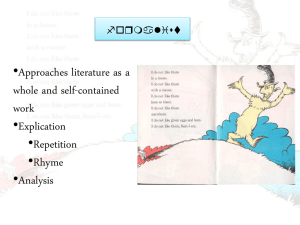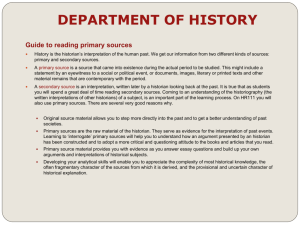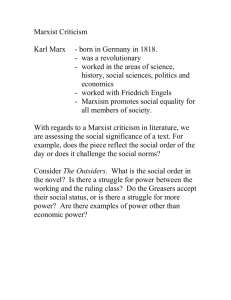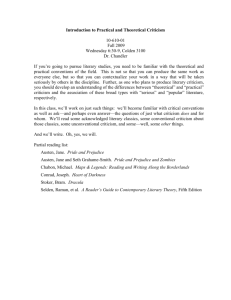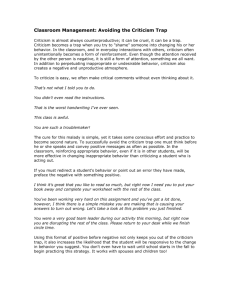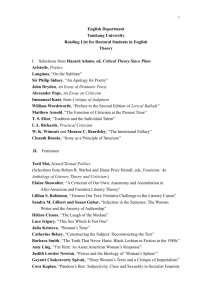Aim: Was the New Deal good or bad for America? Topic: New Deal
advertisement
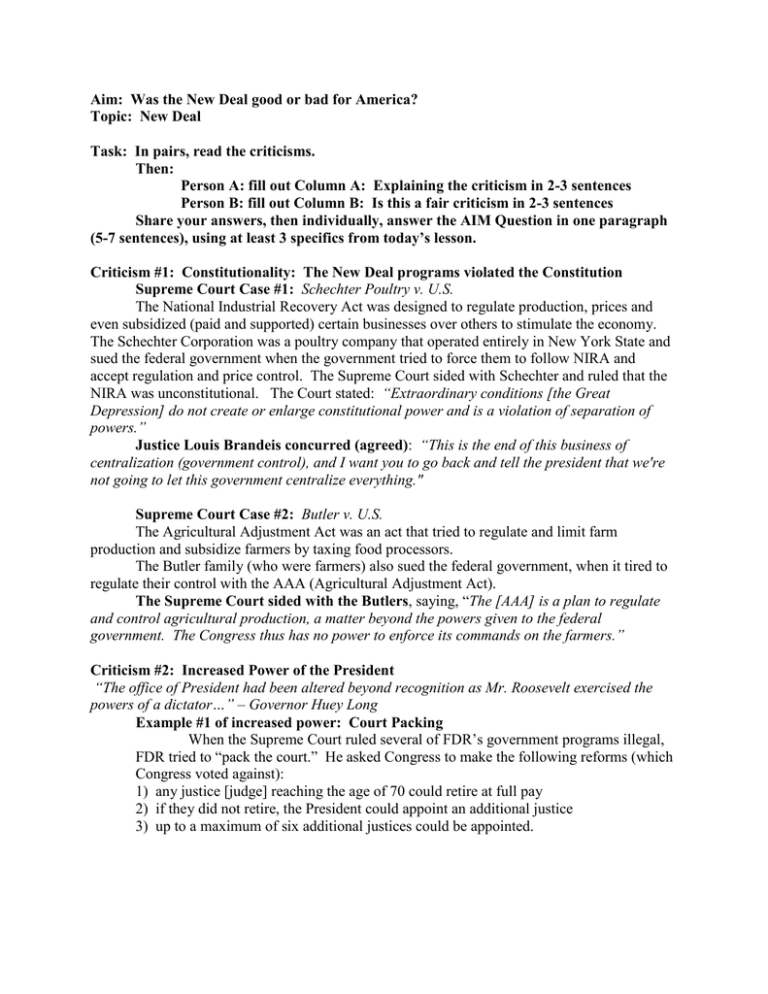
Aim: Was the New Deal good or bad for America? Topic: New Deal Task: In pairs, read the criticisms. Then: Person A: fill out Column A: Explaining the criticism in 2-3 sentences Person B: fill out Column B: Is this a fair criticism in 2-3 sentences Share your answers, then individually, answer the AIM Question in one paragraph (5-7 sentences), using at least 3 specifics from today’s lesson. Criticism #1: Constitutionality: The New Deal programs violated the Constitution Supreme Court Case #1: Schechter Poultry v. U.S. The National Industrial Recovery Act was designed to regulate production, prices and even subsidized (paid and supported) certain businesses over others to stimulate the economy. The Schechter Corporation was a poultry company that operated entirely in New York State and sued the federal government when the government tried to force them to follow NIRA and accept regulation and price control. The Supreme Court sided with Schechter and ruled that the NIRA was unconstitutional. The Court stated: “Extraordinary conditions [the Great Depression] do not create or enlarge constitutional power and is a violation of separation of powers.” Justice Louis Brandeis concurred (agreed): “This is the end of this business of centralization (government control), and I want you to go back and tell the president that we're not going to let this government centralize everything." Supreme Court Case #2: Butler v. U.S. The Agricultural Adjustment Act was an act that tried to regulate and limit farm production and subsidize farmers by taxing food processors. The Butler family (who were farmers) also sued the federal government, when it tired to regulate their control with the AAA (Agricultural Adjustment Act). The Supreme Court sided with the Butlers, saying, “The [AAA] is a plan to regulate and control agricultural production, a matter beyond the powers given to the federal government. The Congress thus has no power to enforce its commands on the farmers.” Criticism #2: Increased Power of the President “The office of President had been altered beyond recognition as Mr. Roosevelt exercised the powers of a dictator…” – Governor Huey Long Example #1 of increased power: Court Packing When the Supreme Court ruled several of FDR’s government programs illegal, FDR tried to “pack the court.” He asked Congress to make the following reforms (which Congress voted against): 1) any justice [judge] reaching the age of 70 could retire at full pay 2) if they did not retire, the President could appoint an additional justice 3) up to a maximum of six additional justices could be appointed. Example #2 of increased power: 4-Term President After winning in a landslide election in 1936, the Great Depression was still happening in America when the next election year, 1940 came. Roosevelt stated that America still needed him as President during these tough times, and ran again and one – breaking the 2-term precedent that every President followed since George Washington. In 1944, FDR ran and won again, this time using World War II as an excuse why he should break tradition. Criticism #3: It did not help the economy “Now in the third year of his administration [1935], we find more of our people unemployed than at any other time. We find our houses empty and our people hungry, many of them half-clothed and many of them not clothed at all.” -- Governor Huey Long of Louisiana “Roosevelt taxed the businessmen to give the working classes greater purchasing power, however, to meet the new burden, the businessmen will have to lay off more workers or raise their prices: tell me how this benefits anyone?” - Historian and economist Milton Friedman. “In order to fund the New Deal, Roosevelt created a budget deficit [when the government spends more money than it has]. These millions of dollars did not even reduce unemployment dramatically and it even began to increase again in 1937.” - Historian and economist Milton Friedman. Criticism #4: It changed American values “In time it became clear that he had changed the fabric of American society and done much to alter the American spirit of self reliance…replacing it with a reliance on the government instead. The Protestant work ethic and Rugged Individualism that made America great has been replaced with this New Deal that has made men serfs to the government.” -- Historian Edgar E. Robinson, 1955 “Oh, capitalism shall never again flourish as once it did. Capitalism has been almost taxed out of existence in an effort to meet the [unemployment] coupons and welfare programs” - Governor Huey Long Criticism #5: It did not help minorities and women. “Roosevelt was not a big believer in Civil Rights and also did not want to step on the toes of [more traditional and even racist] Congressmen who he needed support of. Because of this, New Deal programs offer more opportunities to white men than to women and minorities. Women and African Americans were each paid less than their white male counterparts.” - Historian Edgar E. Robinson Criticism Criticism #1 – Constitutionality of New Deal Criticism #2 – Increased power of the President Criticism #3 – It did not help the economy Criticism #4 – Changed American values Criticism #5 – Unfair to Women and Minorities Explain the criticism in 2-3 sentences Do you think this is a fair or unfair criticism of Roosevelt and the New Deal?
